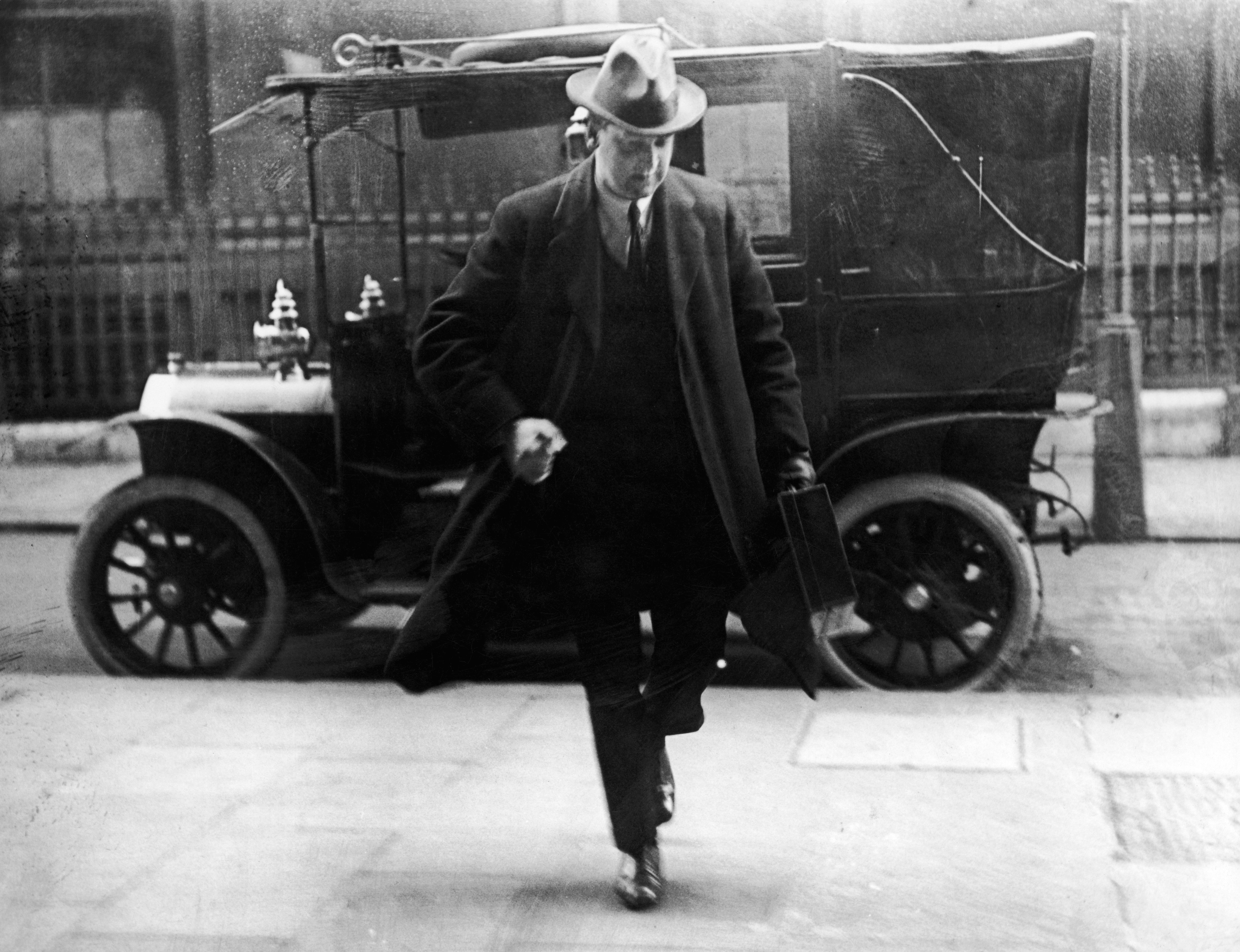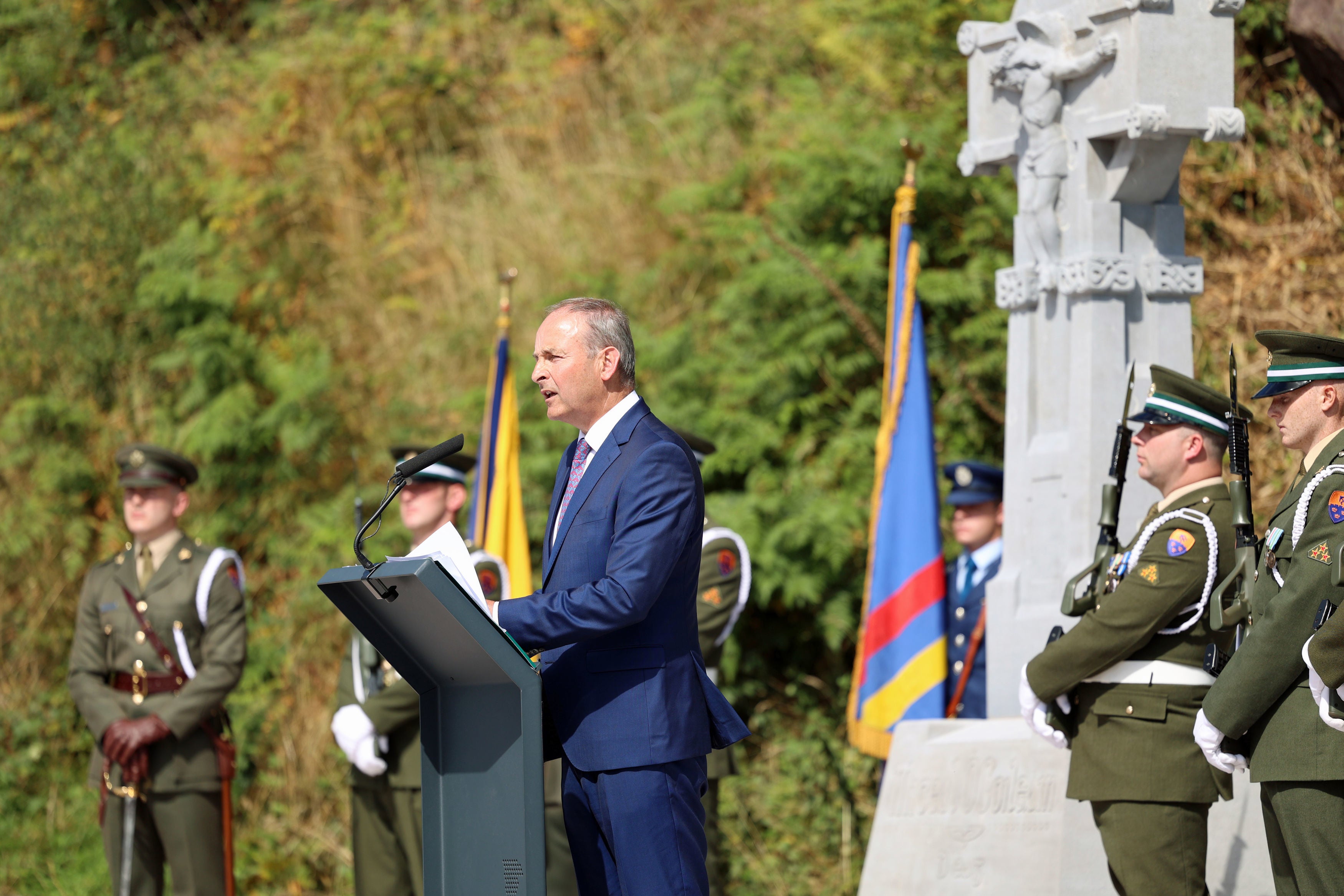Michael Collins: Irish revolutionary’s murder re-examined 100 years on
Researchers say they provide ‘clearer idea’ of what happened on 22 August, 1922

A century after the Irish revolutionary Michael Collins was shot dead in an ambush in rural Cork, forensic scientists and historians have re-investigated his murder.
The research team, led by former state pathologist Marie Cassidy, hope to put to bed some of the myths connected to the 31-year-old’s untimely death.
They were given access to materials recovered from the shooting near Beal na Blath, including Mr Collins’ coat and cap.
Although the identity of the shooter remains a mystery, Ms Cassidy said her group had succeeded in piecing together a better picture of events on 22 August, 1922.
“We can never say who it was, but I think we’ve got a clearer idea of where the shot came from. I think we’ve been able to say, this is what we think happened on this day,” said Ms Cassidy, whose investigation will be aired later this week in RTE documentary Cold Case Collins.
The national hero rose to prominence during the Easter Rising of 1916, and later served as a minister in the Dáil.
However, his decision to sign the Anglo-Irish Treaty in December 1921 proved controversial, leading to his death at the hands of anti-Treaty forces during the Irish civil war.
To commemorate the centenary of his death, the leaders of Fianna Fáil and Fine Gael, two parties who trace their origins to the civil war, travelled to Cork on Sunday to pay their respects.
Taoiseach Micheal Martin praised Mr Collins as “one of the greatest Irishmen to have ever lived”, saying he had made a “deep, lasting and positive impact” on the country.
“It is perhaps the greatest tragedy of Collins’ death that it deprived us of our best hope for reconciliation,” he added.

Tanaiste Leo Varadkar also celebrated the independence fighter, describing him as a “great prophet of freedom”.
“He was both an idealist and a realist. And, as he predicted, the Treaty gave us freedom and the freedom to achieve more freedom in the future,” Mr Varadkar said.
“Others fought on for decades, only to accept Collins’s approach almost 100 years later.
“He had the courage to make peace and accept that, in doing so, he could not take everyone with him. It cost him his life, but his legacy and mission live on.”
The Irish leaders laid wreaths at the Collins monument and observed a minute’s silence. More commemorative events will take place on Monday.




Join our commenting forum
Join thought-provoking conversations, follow other Independent readers and see their replies
Comments